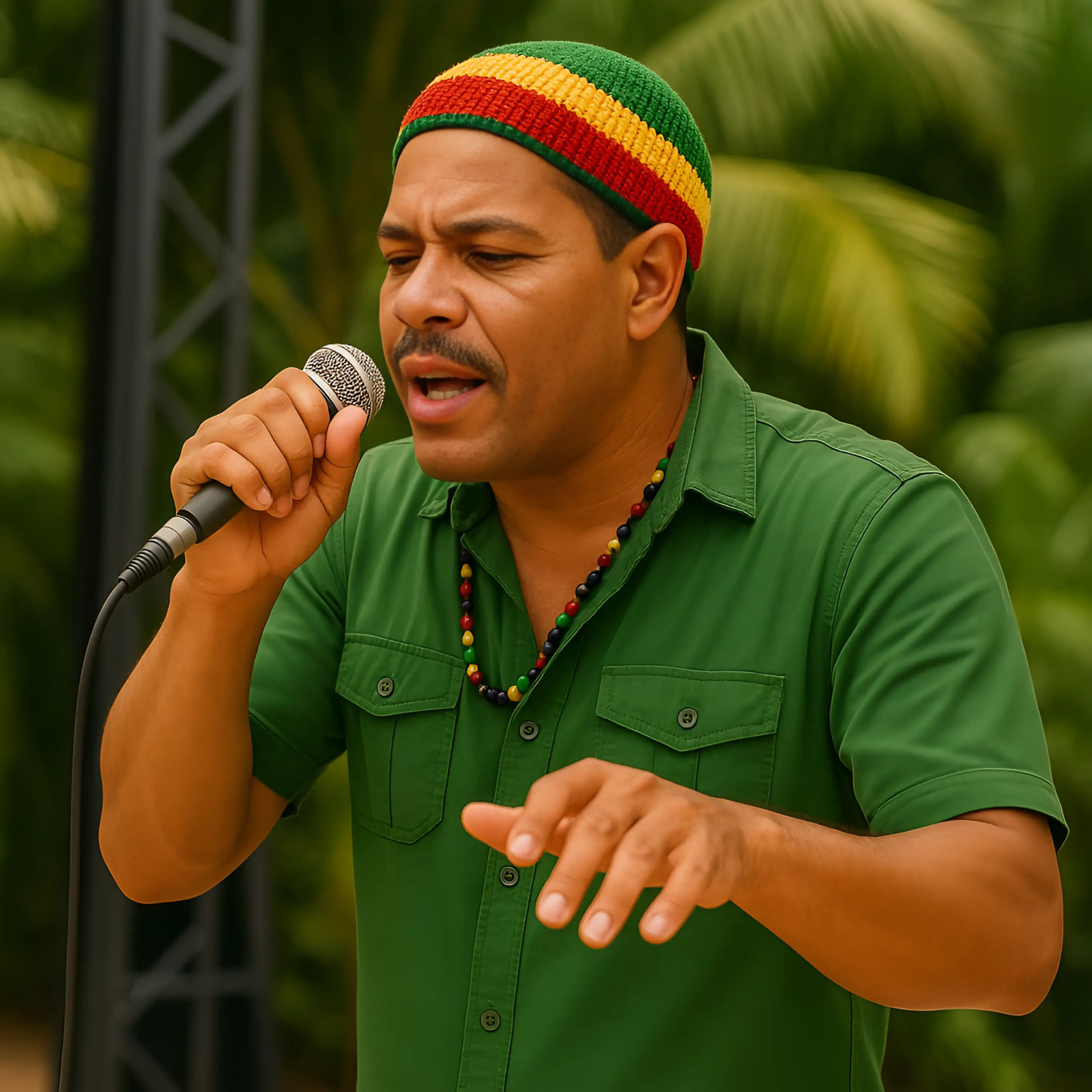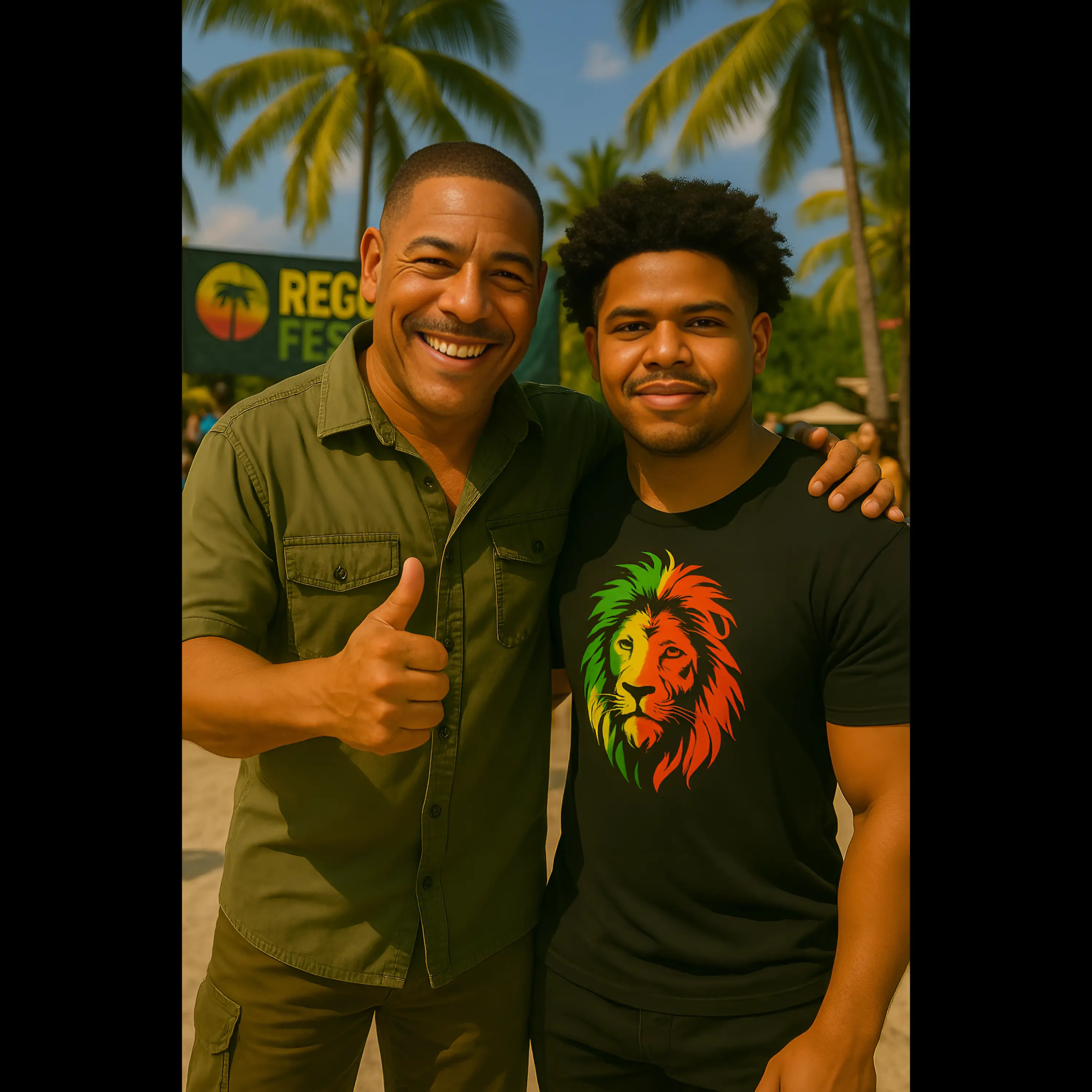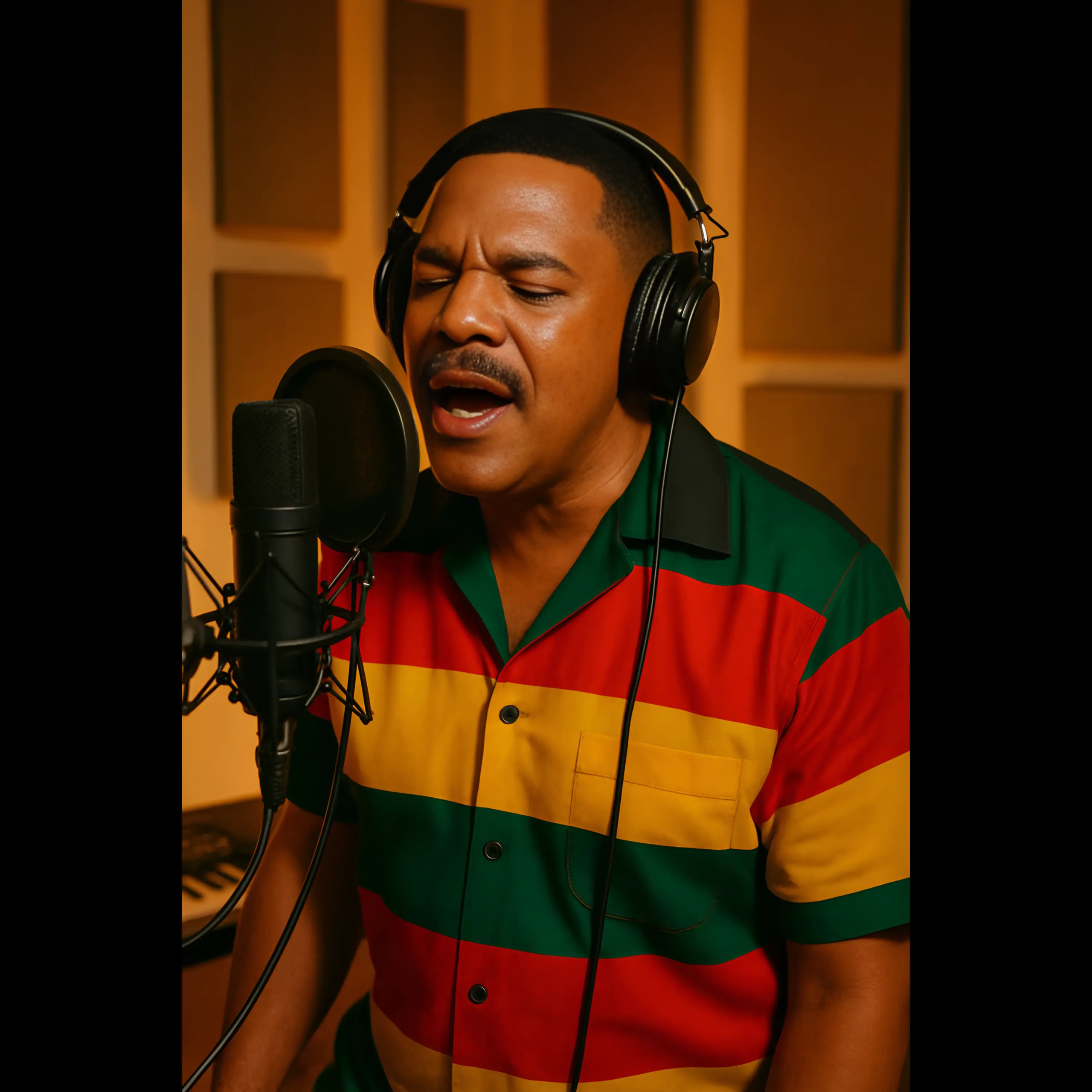Emmanuel Carlos St. Omer’s single “My Very Own Brother” is more than a piece of music—it’s a wake-up call wrapped in melody, history, and soul. It’s a deeply personal, raw, and courageously honest track that doesn’t just skim the surface of injustice but dives headfirst into one of the most painful and often ignored truths of the African diaspora: the betrayal of brother by brother during the transatlantic slave trade.

At its core, “My Very Own Brother” is a historical reckoning and a spiritual lament. It explores how the wound of slavery isn’t just a result of colonialism or foreign cruelty—but also of betrayal from within. The song opens with a line that lingers long after the first listen:
“Iron sang on mother’s shore, a hymn of silent screaming…”
This line alone captures the poetic gravity of the song. It sets the tone for a reflective and sobering experience that Emmanuel Carlos St. Omer delivers with both grace and urgency. The lyricism throughout the track is powerful—full of metaphor, storytelling, and emotional weight. But what truly elevates this single is how the message and the music work together so seamlessly.

Set against a rich, atmospheric reggae backdrop, “My Very Own Brother” feels meditative and haunting, yet it carries a rhythmic heartbeat that keeps you grounded in the present. The instrumentation is beautifully crafted—warm basslines, subtle keys, and layered percussion that create a deeply soulful texture. There’s nothing rushed here. Every note, every phrase, feels deliberate and full of meaning.
As a Caribbean artist, St. Omer draws heavily on his heritage. You can hear it in his voice—both literal and artistic. There’s a deep reverence for history, a clear sense of cultural weight behind his delivery. But this isn’t just a song for Caribbean listeners—it’s a song for anyone who’s ever questioned the silence in the pages of history books. It’s for anyone wrestling with inherited pain or looking for a path toward healing.

What makes “My Very Own Brother” stand out is that it doesn’t aim to point fingers—it invites reflection. It asks hard questions about complicity, internalized oppression, and identity. Yet it doesn’t stop at grief or guilt. The song builds toward something greater: the possibility of unity. The line “By God’s grace I rise — bravery is mine” is the emotional climax, a turning point that shifts the song from sorrow to resilience.
This single is timely. In a world still reeling from the effects of systemic racism, identity erasure, and historical denial, “My Very Own Brother” arrives like a mirror—showing us where we’ve come from, what we’ve inherited, and what we still carry. But it also offers a lantern. Emmanuel Carlos St. Omer doesn’t just want us to remember—he wants us to wake up, heal, and rise.

“My Very Own Brother” is a stunning act of musical bravery. It doesn’t pander, and it doesn’t preach. Instead, it speaks the kind of truth that makes you pause, reflect, and maybe even cry. Emmanuel Carlos St. Omer has created a track that’s spiritually grounded, politically aware, and emotionally honest. It’s a testament to the power of music not just to entertain, but to awaken and transform.
If this is any indication of what St. Omer has planned next, he’s more than an artist to watch—he’s a voice the world needs to hear.
Connect with EMMANUEL CARLOS ST.OMER
